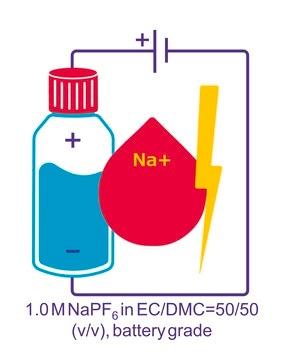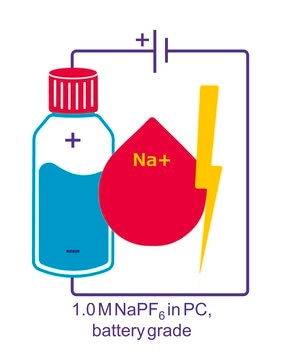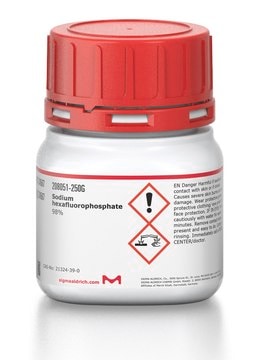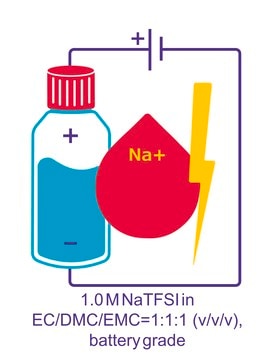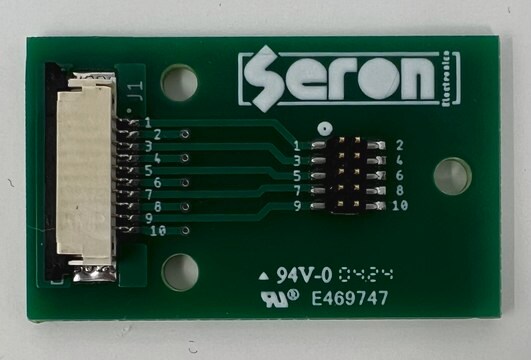935972
Sodium hexafluorophosphate solution

in ethylene carbonate, dimethylcarbonate, and ethylmethylcarbonate, 1.0 M NaPF6 in EC/DMC/EMC=1:1:1 (v/v/v), battery grade
Sinónimos:
1.0 M NaPF6 in EC/DMC/EMC
About This Item
Productos recomendados
grade
battery grade
Quality Level
form
solution
greener alternative product characteristics
Design for Energy Efficiency
Learn more about the Principles of Green Chemistry.
sustainability
Greener Alternative Product
concentration
0.95-1.10 M (NaPF6)
impurities
≤100 ppm Acid
≤100.0 ppm H2O
application(s)
battery manufacturing
greener alternative category
General description
Application
Related product
signalword
Danger
hcodes
Hazard Classifications
Acute Tox. 4 Oral - Eye Dam. 1 - Flam. Liq. 3 - Skin Corr. 1B - STOT RE 2 Oral
target_organs
Kidney
Storage Class
3 - Flammable liquids
wgk_germany
WGK 3
flash_point_f
77.0 °F
flash_point_c
25 °C
Certificados de análisis (COA)
Busque Certificados de análisis (COA) introduciendo el número de lote del producto. Los números de lote se encuentran en la etiqueta del producto después de las palabras «Lot» o «Batch»
¿Ya tiene este producto?
Encuentre la documentación para los productos que ha comprado recientemente en la Biblioteca de documentos.
Nuestro equipo de científicos tiene experiencia en todas las áreas de investigación: Ciencias de la vida, Ciencia de los materiales, Síntesis química, Cromatografía, Analítica y muchas otras.
Póngase en contacto con el Servicio técnico